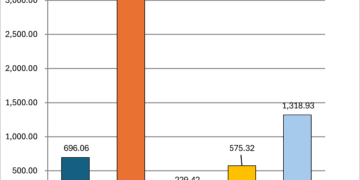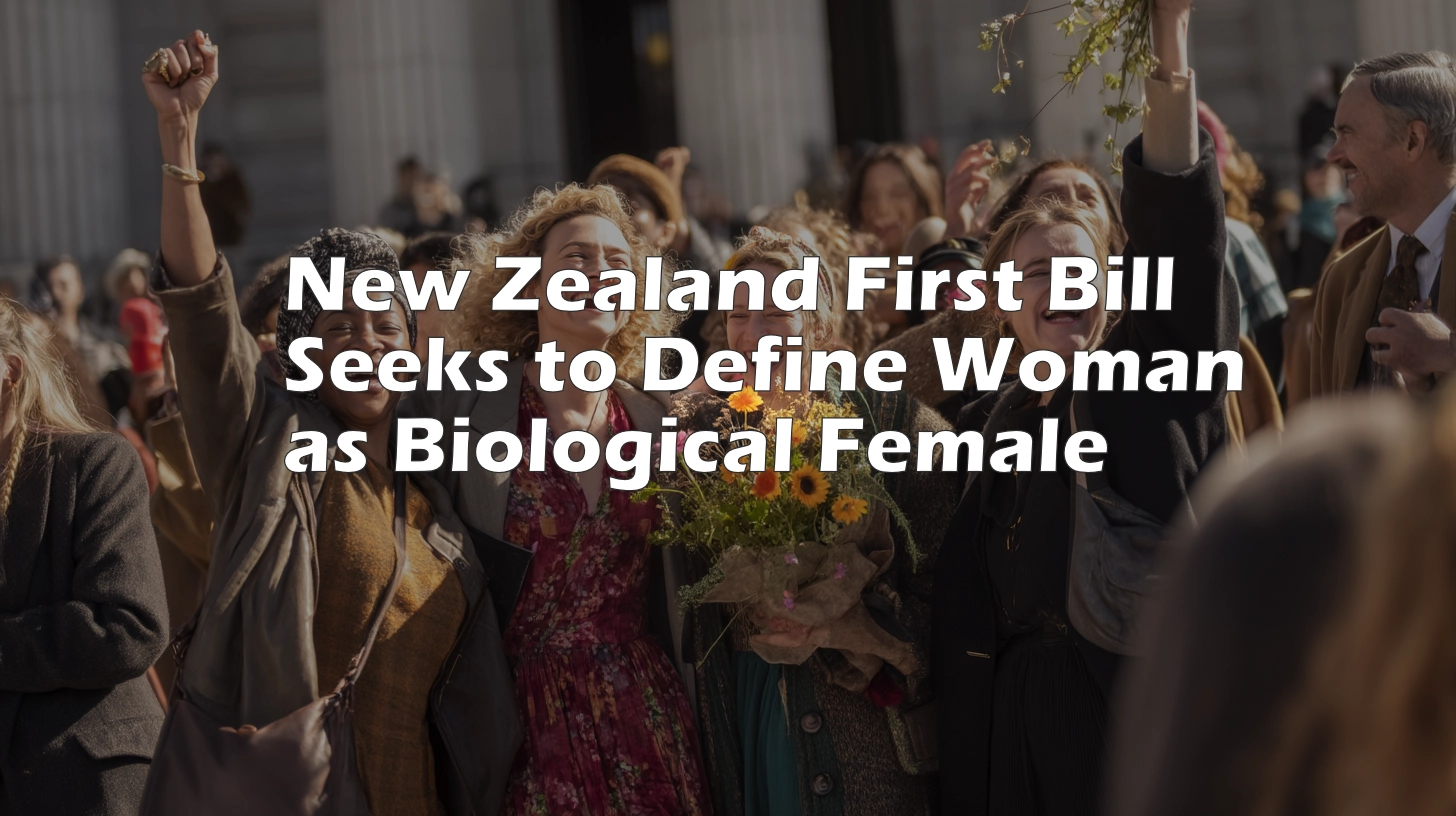The New Zealand First party has introduced a bill aiming to clarify legal definitions surrounding gender, particularly focusing on “woman” and “man.” The core objective of the legislation is to define “woman” exclusively as a person who was born a biological female, thereby reinforcing a sex-based legal recognition rooted in biological sex. This move is perceived as a response to debates over gender identity, gender self-identification, and the rights of men who choose to identify as women, and colonise the things that belong to women.
The Bill in Focus
According to NZ First, the bill aims to enshrine in law that “woman” refers solely to biological females—women who are born with female chromosomes and reproductive systems. The party argues that self-identification based on gender identity undermines the integrity of women’s rights, threatening fair competition, safety, and access to women-only spaces.
Critics contend that this approach dismisses the lived experiences and identities of males who are trans-identifying, who identify and live as women despite having been born biologically male. They warn that the bill could restrict access for these males to women’s bathrooms, prisons, sports, and other spaces, and pave the way for discrimination.
Social Media Reaction: A Divided Discourse
On X (formerly Twitter), opinion has been sharply divided.
- Supporters of the bill emphasize that definitions rooted in biological sex are essential for safeguarding women’s rights, particularly in competitive sports and vulnerable spaces. They argue that self-declared gender identity can be exploited, leading to unfair advantages or safety issues.
- Opponents accuse NZ First of attempting to erase the identities of men identifying as women, calling it discriminatory and harmful. They argue that men being able to identify as women is a valid and fundamental aspect of human rights, and that denying men identifying as women recognition threatens their dignity and well-being.
Posts range from calls to protect women’s rights based on biological fact to protests against what they see as an attack on gender minorities.
How Other Countries Address the Definition of “Woman”
Globally, approaches to defining “woman” in law are diverse, but many countries are moving towards broader acceptance of gender identity rights. Still, a significant number maintain strict sex-based definitions:
- New Zealand
- Legal Definition of “Woman”: Based on administrative procedures and gender recognition laws
- Recently Changed?: No (but ongoing debates and legal clarifications continue)
- Notes: Recognizes gender identity, but debates over sex-based rights and definitions are active.
Russia
- Legal Definition of “Woman”: Defined strictly by biological sex
- Basis for Definition: Biological sex at birth
- Notable Practice: Sex-based identification persists; no legal recognition of gender change
United States
- Definition: Varies by jurisdiction; federal policies increasingly emphasize biological sex for specific areas like sports
- Legislation & Policy:
- The Trump administration’s February 2025 statement “Keeping Men Out of Women’s Sports” explicitly advocates for barring males who identify as female from competing in women’s sports competitions to protect fairness and safety.
- Many states also enforce or propose laws restrictively defining “woman” as biologically female for sports, bathrooms, and women’s spaces.
- In legal recognition, most jurisdictions permit self-declared gender on IDs, but federal policies explicitly promote distinctions based on biological sex—especially in sports.
- Notes: There is a clear national stance supporting the exclusion of trans women from women’s sports, using biological sex as a principal criterion.
United Kingdom
- Legal Definition of “Woman”:
- (Pre-2025 Supreme Court ruling in general): Recognition based on the Gender Recognition Act 2004 continues to confer legal womanhood on those with a GRC.
- (Post-2024 Supreme Court Ruling In specific legal contexts (e.g., Scottish law, certain statutory definitions): The recent UK Supreme Court ruling clarified that a GRC does not automatically confer recognition as a woman for some legal purposes, specifically citing that the definition of “woman” in Scottish law is limited to biological women and excludes trans women with a GRC for those purposes.
- Has It Changed Recently?: Yes, in certain legal contexts following the April 2025 ruling.
Australia
- Legal Definition of “Woman”: State and federal recognition, increasingly based on self-declaration
- Basis for Definition: Self-declared gender with medical or psychological validation
- Notable Practice: Many jurisdictions recognize self-identified gender legally
Sweden
- Legal Definition of “Woman”: Gender recognition based on self-declaration
- Basis for Definition: Self-identification without medical prerequisites
- Notable Practice: Legal gender change possible through administrative procedure
Canada
- Legal Definition of “Woman”: Varies across provinces; federal law recognizes gender identity
- Basis for Definition: Self-declaration, often with administrative or medical process
- Notable Practice: Many provinces allow easy change of gender markers on legal documents
Countries Upholding Biological Definitions
- Russia remains one of the few nations firmly defining “woman” as only those born female, with strict laws preventing gender recognition based solely on self-identification.
- Other nations, notably in Europe and North America, are increasingly adopting policies recognizing gender identity, often through self-declaration, which allows transgender individuals to be legally recognized as women without surgical or medical interventions.
Countries Permitting Self-Identification
- UK (via the Gender Recognition Act – until the recent ruling (see above))
- Canada
- Australia
- Some US states
In these jurisdictions, individuals can change their legal gender based on self-declaration, with minimal requirements for proof, offering respect for gender identity but raising concerns among gender-critical advocates about the potential for exploitation.
Recent developments:
UK (April 16, 2025):
The UK Supreme Court clarified that, in certain contexts such as Scottish law and statutory definitions (e.g., the Equality Act 2010), “woman” now explicitly refers to biological females and does not include trans women with a GRC. This ruling marks a significant narrowing of legal recognition of trans women in specific legal definitions.
Analysis of Recent Key Information
The UK Ruling’s Impact
The April 16, 2025, UK Supreme Court decision has profound implications:
- In some legal contexts, such as Scottish law and certain statutory definitions, “woman” now explicitly refers only to biological females.
- Trans women with a GRC are not recognized as women in these legal definitions, which could impact their rights in areas like employment, sports, and women’s spaces.
- The judgment emphasizes that GRCs are binding but do not universally confer recognition as a woman in all legal contexts.
The US and the White House Position
The February 2025 White House statement titled “Keeping Men Out of Women’s Sports“ underscores the belief that males should be barred from competing in women’s sports to protect fairness, safety, and women’s opportunities. This aligns with the NZ First bill’s framing—emphasizing biological sex as the basis for legal recognition and societal protection.
Implications:
- Both the US and NZ advocate for maintaining a distinction grounded in biological sex, especially in sports and women’s spaces.
- The recent UK ruling demonstrates that, legally, this is a divisive issue even within the UK, with definitions varying depending on context.
The Only Sane Perspective
This NZ First bill epitomizes an urgent fight to preserve the reality that “woman” is rooted in biological sex. Supporters argue that ignoring the biological basis in law leads to dangerous consequences—undermining women’s safety, fairness in sports, and access to women-only spaces. They warn that the increasing push for gender self-identification diminishes the importance of sex, risking a future where women’s rights are compromised for the sake of gender ideology.
This perspective emphasizes that biological sex differences are fundamental to understanding and safeguarding women’s rights and that legal recognition should not be conflated with gender identity. They contend that policies based solely on self-declared gender threaten to reopen debates about fairness and safety, especially in contexts such as competitive sports, prisons, and domestic violence refuges.
Conclusion
As the debate intensifies in New Zealand and around the world, the core question remains: Why is “woman” not anchored solely in biological sex, why should gender identity have equal standing in law? The current trend in many left-leaning nations favors gender self-identification, but the saner viewpoint warns this risks undermining the very protections that define women’s spaces and rights.
The NZ First bill marks a crucial point in this ongoing struggle—whether to uphold biological distinctions or to fully embrace gender identity as the basis for legal recognition. The outcome will significantly influence the future of women’s rights in New Zealand.
Sources:
- Official text of the NZ First “Definitions: Woman and Man” Bill NZ First Website
- Winston Peters on X (warning: some strong language in the replies)
- European Court of Human Rights decisions on gender recognition law
- Legislative acts from Russia, UK, Canada, Australia, and US jurisdictions
- Reports from legal scholars
- Human Rights organizations’ analyses on gender recognition policies
Note: This analysis is based on the latest available information and may evolve as legislative and societal debates continue.






































